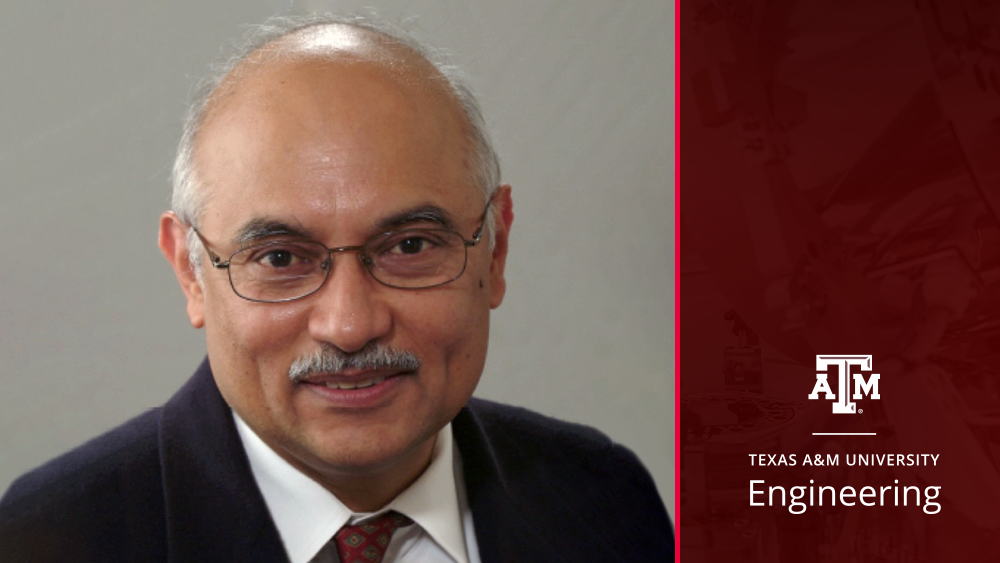
Dr. P.R. Kumar is the 2022 recipient of one of the Institute of Electrical and Electronics Engineers’ (IEEE) most prestigious honors — the IEEE Alexander Graham Bell Medal. It is the highest award by IEEE in communications and networking. Kumar was recognized for his seminal contributions to the modeling, analysis and design of wireless networks.
Kumar’s contributions to wireless networks, together with his students, include the development of scaling laws, information theory, stochastic geometry, networking with deadlines and several protocols for multiple access communications, power control, scheduling and mobility.
Kumar pioneered a new approach for the design of wireless networks. His work in scaling laws is one of the most widely cited in the area of communications over the last several decades, with more than 10,000 citations. It led to the reconsideration of programs for developing large wireless networks. His development of an information theoretic approach for large wireless networks resulted in a resurgence of work on issues that were previously considered unsolvable and energized the field. He also developed new stochastic geometry approaches for analyzing how the spatial distribution of nodes affects their performance, which have since become widespread and standard in the field. His modeling of communication with deadlines allowed precise results on scheduling packets in networks. He also employed his insights to develop protocols for operating wireless networks.
Besides wireless networks, Kumar’s research interests include game theory, adaptive control, simulated annealing, machine learning, queueing networks, manufacturing systems and scheduling wafer fabrication plants. His current research focus includes renewable energy, power systems, security, privacy, automated transportation, unmanned aerial vehicle traffic management, millimeter-wave 5G and cyber-physical systems.
IEEE medals are the highest awards in the hierarchy of IEEE awards. The IEEE Alexander Graham Bell Medal was established in 1976, in commemoration of the centennial of the telephone's invention, to provide recognition for outstanding contributions to telecommunications. The medal is given to researchers, inventors, innovators and practitioners who have provided exceptional contributions to communications and networking sciences and engineering. These achievements and outstanding contributions have made a lasting impact on technology, society and the engineering profession.
Previous recipients of the Alexander Graham Bell Medal have included trailblazers such as the founders of Qualcomm, the developers of the internet, the ethernet, optical communication, digital subscriber line (DSL) and cellular telephony. They have pioneered electronic switching systems used for telephone systems, deep space communication technology, geostationary communication, optical fiber communications, adaptive noise cancellation, cellular mobile communications systems, the ethernet, packet switching, coding of pictures, digital satellite communications, the internet, DSL, multiple antenna wireless communications used in 4G and beyond and routers.
Kumar has been recognized for his contributions through multiple awards in the fields of communication, control and computer science, including the IEEE Field Award for Control Systems, the Donald Eckman Award of American Automatic Control Council, the Fred Ellersick Prize of IEEE Communications Society, the Outstanding Contribution Award from the Association for Computing Machinery’s (ACM) Special Interest Group on Mobility of Systems, Users, Data and Computing (SIGMOBILE), the SIGMOBILE Test-of-Time Paper Award, the Infocom Achievement Award, and the Comsnets Outstanding Contribution Award. He was awarded an honorary doctorate by the Swiss Federal Institute of Technology Zurich. He is a member of the National Academy of Engineering, the World Academy of Sciences and the Indian National Academy of Engineering, and is an ACM fellow and a fellow of IEEE.